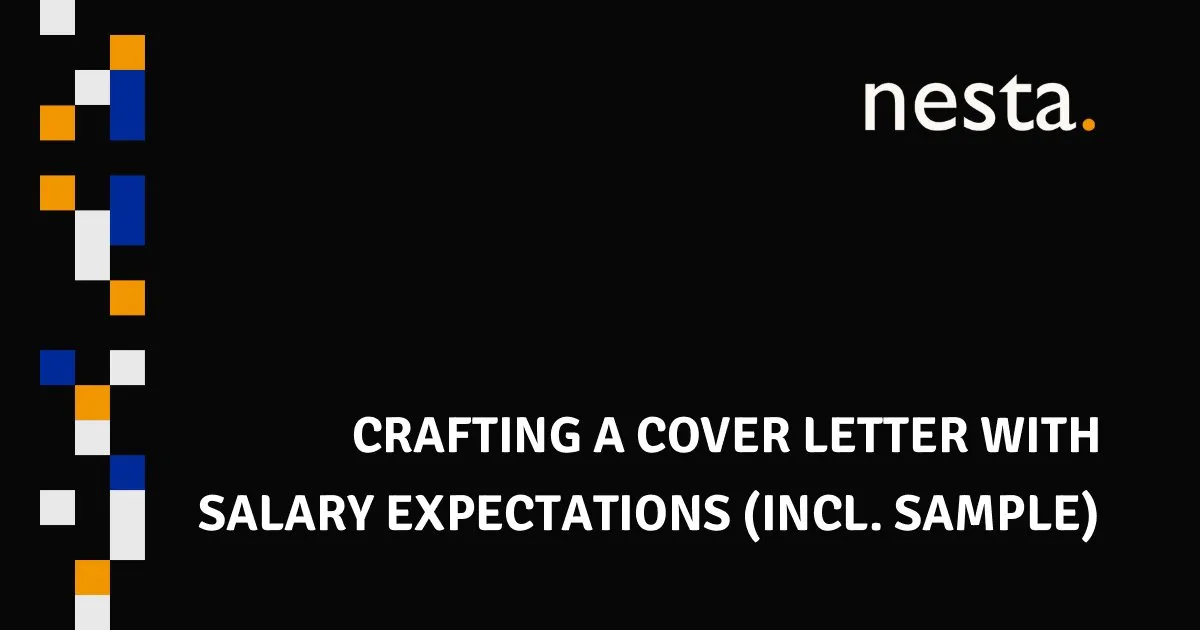Why Salary Expectations Matter in Your Cover Letter
Your cover letter is your first chance to make a positive impression. It’s more than just a formality; it’s a crucial tool to show why you’re a great fit for the job. One critical aspect often overlooked is addressing salary expectations. Many job seekers hesitate, but including this information demonstrates that you understand the role’s value and are serious about the opportunity. By clearly stating your salary needs or expectations, you can show your professionalism and save both you and the hiring manager time. It’s a proactive step that highlights your preparedness for a smooth recruitment process. The way you approach this topic can significantly influence how the recruiter views you, making this a key element in crafting a successful cover letter that boosts your chances of landing an interview and ultimately, the job.
The Importance of Stating Your Salary Needs
Clearly stating your salary needs in a cover letter is a sign of your professionalism and preparedness. It signals that you’ve thought about your worth and the industry standards, and helps recruiters quickly assess whether your expectations align with their budget. This upfront discussion can prevent misunderstandings and wasted time later in the hiring process, which is beneficial for both you and the employer. Not including this, especially when asked, could make you appear less informed or unprepared, which can negatively affect your chances. Showing that you’ve researched and have a realistic view of compensation adds to your credibility and reinforces your commitment to the role and the company.
How Recruiters Evaluate Salary Expectations
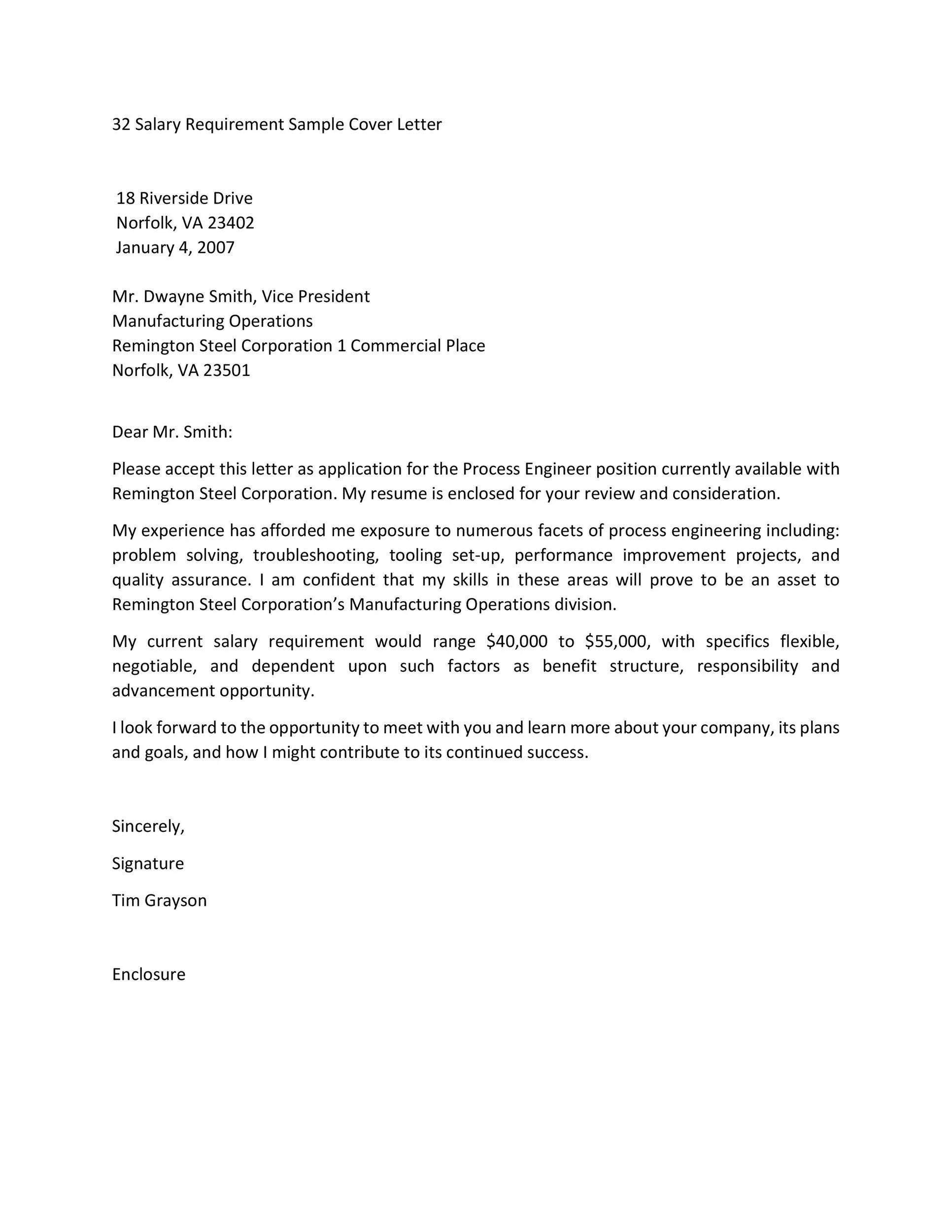
Recruiters use your salary expectations as a filter to assess your suitability. They want to ensure that your needs align with the company’s budget for the position. Realistic expectations show that you are informed about industry standards and have considered your experience and skills. Unrealistically high expectations can immediately disqualify you, while those that are too low might raise questions about your value and experience level. Recruiters also look for consistency; your stated salary expectations should be consistent across your application materials and during interviews. By clearly and realistically presenting your salary needs, you help the recruiter quickly determine if you’re a viable candidate, moving the process forward efficiently and professionally.
How to Research Salary Ranges
Before you draft your cover letter, effective salary research is key. It shows you’re informed and serious about the job. Knowing the standard pay range for the position in your area gives you a benchmark for your salary needs. This information protects you from undervaluing yourself or setting unrealistic expectations that could hinder your chances of employment. By showing that you’ve put in the effort to research market rates, you project confidence and professionalism. Being prepared helps you articulate your expectations with clarity and conviction. This strategic approach to salary research will equip you to negotiate successfully and increase the likelihood of an offer.
Utilizing Online Salary Resources
There are many online resources you can use to research salary ranges. Websites like Glassdoor, Salary.com, and LinkedIn Salary offer salary data based on job titles, locations, and experience levels. These sites let you see what other professionals in similar roles are earning, helping you form a realistic understanding of the market. Another valuable resource is the Bureau of Labor Statistics (BLS) in your country, which provides detailed information on wage distributions. It’s important to note that the data found on these websites is a guide, so compare the information and consider the source. Use these tools to form a clear view of the average salary and adjust for your experience and the job’s requirements. This research makes you better prepared to confidently express your salary expectations in your cover letter.
Analyzing Job Descriptions for Salary Clues
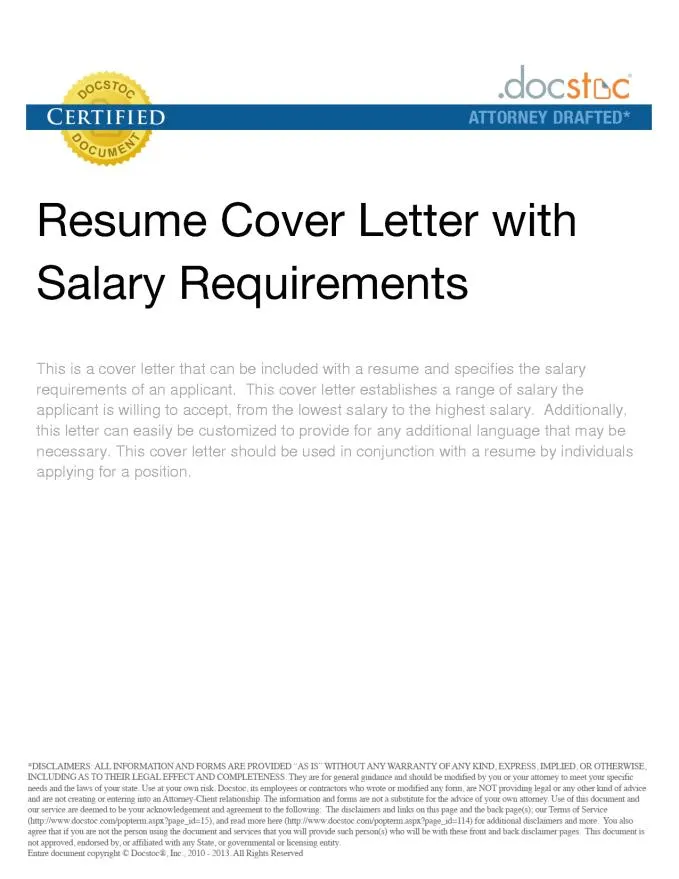
Carefully examine the job description for clues about salary expectations. Some employers may include a salary range directly in the posting. If a range is provided, that gives you a strong indication of the budget. Even if a specific salary is not listed, the job description can give you insights. Look for the key requirements and responsibilities, as this might give you a clue of the level the position holds within the company. Note what experience or qualifications the employer is seeking, which helps in assessing the salary level. The more senior the role, the higher the pay will likely be. The listed skills, experience, and requirements provide you with the data needed to set the expectations. Use these insights, combined with online salary data, to determine what to include in your cover letter.
Crafting Your Cover Letter
Your cover letter should be tailored for each job application, and including your salary expectations is a critical step. You need to know where it’s best to include your salary needs and what approach will work best. This section of your cover letter should be direct, clear, and professional. By taking the time to understand the guidelines, you’ll be in a better position to express your requirements in a way that appeals to the hiring manager. Remember that this step is essential to the application process and can help you to set the tone for the interview and negotiations, so doing it correctly will lead to a better chance of a job offer.
Where to Include Salary Expectations
The best place to mention salary expectations in your cover letter is typically towards the end, in the paragraph where you summarize your interest and reiterate your enthusiasm for the role. This positioning allows you to first highlight your qualifications and demonstrate your value to the employer. After you’ve emphasized your skills and how they align with the job’s needs, you can transition to discussing salary. This placement avoids putting the salary information front and center, and it helps you to frame your request in a way that is aligned with the benefits that you bring to the employer. Use a sentence or two to state your expectation or to provide a salary range. The key is to be upfront without making it the main focus.
Different Approaches to Stating Your Salary
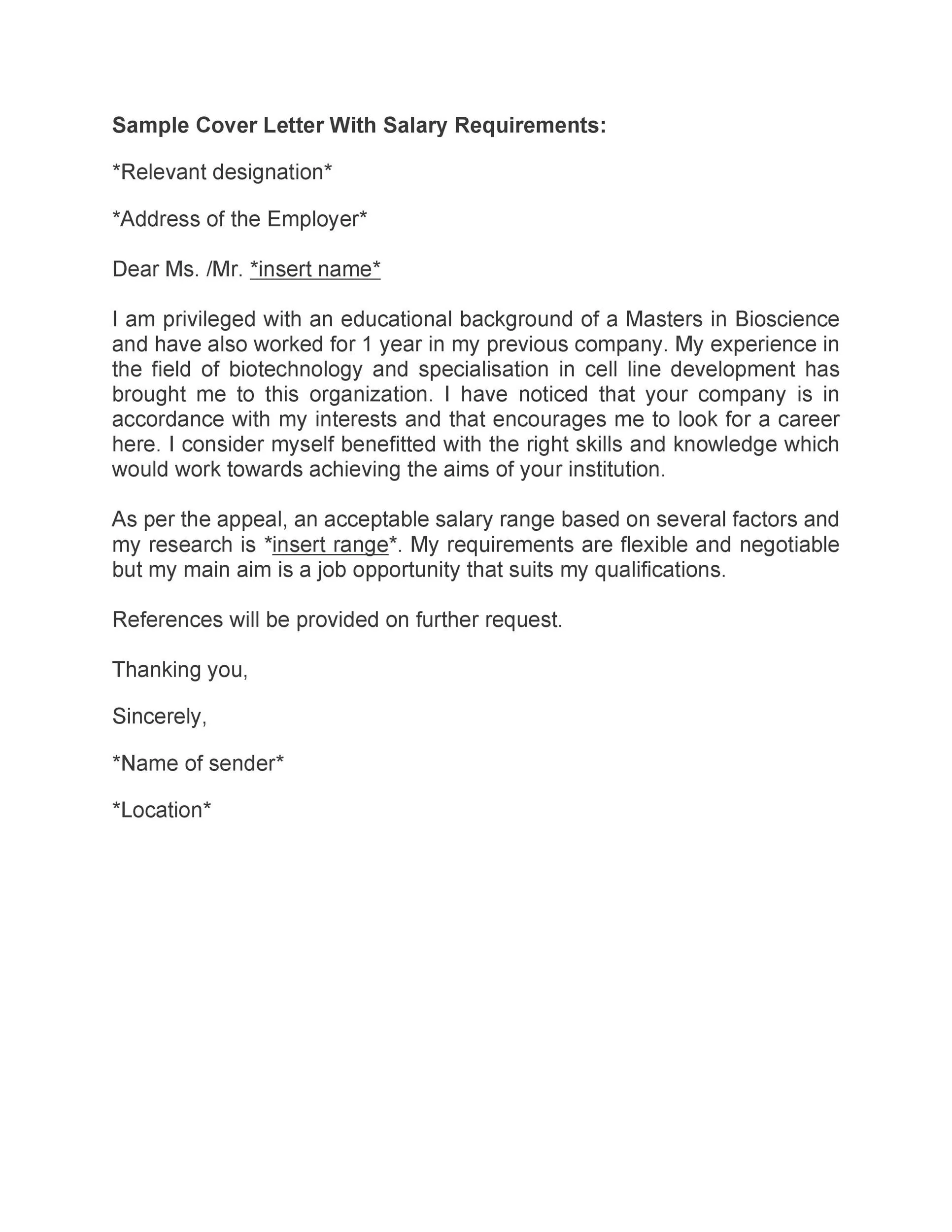
There are several ways to approach stating your salary expectations in your cover letter, depending on your research and the specific job. You can state your desired salary outright, or you may choose to provide a salary range. Some job seekers prefer to defer the discussion until the interview stage, especially if the job description does not ask for a specific salary. The best strategy depends on your comfort level, the type of job, and the employer’s culture. If you feel comfortable, stating a specific salary can be useful. Offering a salary range can be more flexible, allowing you to negotiate based on the full scope of the role. It is important to ensure that your approach reflects your professional experience and your level of confidence.
Mentioning Salary Requirements or Expectations
When mentioning your salary requirements, be direct but professional. Instead of stating a specific amount, you might say, “My salary expectations are in line with industry standards for a role with similar responsibilities.” This approach shows that you are aware of current market rates and are realistic about your value. If you know the exact amount you want to earn, you can simply state “I am seeking a salary of $X.” Ensure that this amount aligns with your research. It’s essential to be clear and concise and, if possible, align your statement with what’s stated in the job description. This ensures that you meet the employer’s requirements while setting the right foundation for your future negotiations.
Offering a Salary Range
Providing a salary range offers flexibility in the negotiation. It demonstrates that you’re open to discussion while also signaling the minimum compensation you are willing to accept. When offering a range, make sure it’s realistic and aligns with your research, and that the lower end of your range is acceptable. For example, you could say, “I am seeking a salary in the range of $X to $Y, commensurate with my experience and the responsibilities of this position.” This offers a clear picture of your expectations and allows for some movement. This strategy helps you show flexibility while also giving the employer an understanding of your overall financial expectations. By offering a well-researched range, you position yourself as a knowledgeable and adaptable candidate, increasing your chances of a job offer.
The Art of Negotiation
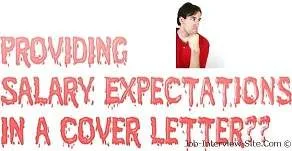
Salary negotiations are an art form; however, doing your research gives you a great starting point. To negotiate effectively, it’s important to prepare by understanding your value and knowing your bottom line. If the employer offers a salary below your expectation, be ready to back up your request with your skills, experience, and the contributions you can bring to the company. Focus on the overall package, including benefits, vacation time, and other perks, to see if they meet your needs. Be confident, be polite, and always keep your expectations in line with market rates. Effective negotiation requires preparation and a realistic understanding of your worth, allowing you to reach an agreement that works for you and the company.
When to Discuss Salary in Detail
While your cover letter provides a basic overview of your salary expectations, the detailed discussions should typically be reserved for later stages in the interview process. Once an employer has expressed interest, this opens the door to a more in-depth discussion. At this stage, you can elaborate on your research, justify your expectations with concrete examples of your skills and experience, and negotiate the specifics. Always be professional, and be prepared to back up your request with details that highlight your value. Keep in mind that a willingness to discuss salary indicates that the employer is seriously considering you for the role. It presents an opportunity to clarify any doubts and come to an agreement that respects both your needs and the company’s resources.
Handling Salary Discussions During Interviews
When the time comes to discuss salary during the interview, prepare to address it confidently and clearly. Reiterate the salary expectations you stated in your cover letter, and be ready to explain how your experience and qualifications justify your requests. If the employer offers a lower salary, be prepared to negotiate. Always be polite and professional, and clearly outline the reasons you feel you deserve the amount you are asking for. Focus on what you bring to the table, your past achievements, and how you will contribute to the company’s success. Be open to compromise, but also know your worth and be willing to walk away if the offer is unacceptable. The goal is to find a salary that reflects your value and respects the company’s financial plan.
Mistakes to Avoid
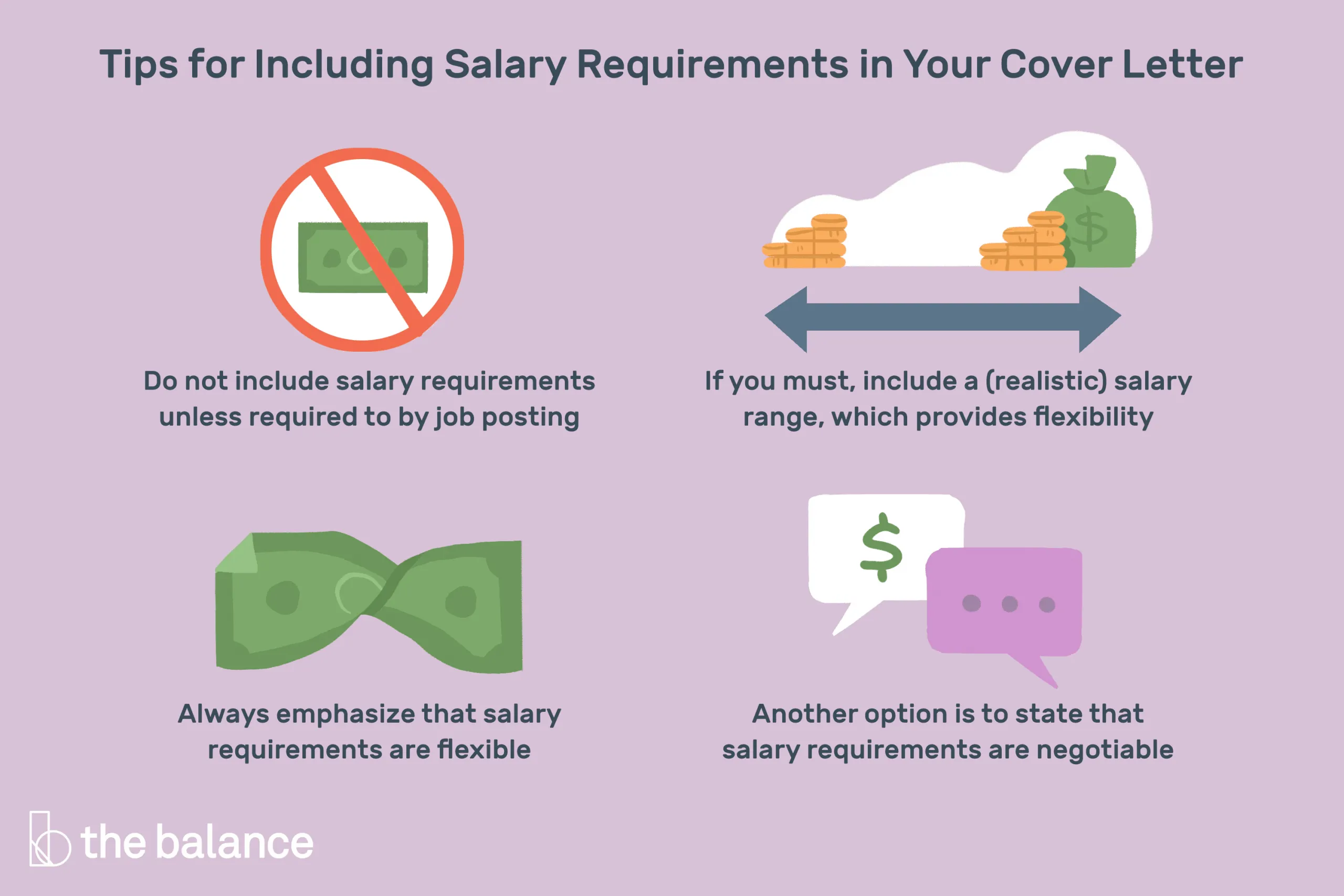
Avoiding common mistakes is as crucial as knowing how to handle salary expectations effectively. Mistakes can harm your chances, so being aware of them will boost your application. The aim is to make the process as smooth and successful as possible. Being informed helps you to navigate these sensitive topics with confidence and professionalism. Avoiding the pitfalls outlined below will increase your chance of success.
Listing an Unrealistic Salary
Listing an unrealistic salary can immediately disqualify you. If your expectations are far above the market rate for the position and your experience, the employer will likely assume you are not a good fit for the role. This signals a lack of understanding of the market or a disregard for the company’s budget. If the salary is too low, the employer might assume you lack experience and are not confident in your ability to bring value to the company. It’s important to conduct thorough research to set realistic expectations before applying. Be informed about the current market rates for the type of role and your experience level to increase your chances of landing the offer.
Avoiding Vague Statements
Avoid vague statements when discussing salary expectations. Phrases like “negotiable” or “competitive salary” lack specificity and don’t give the employer the information they need to assess your suitability. They can also make you look unprepared or unsure of your worth. A better approach is to provide a salary range based on your research or to state the exact amount you are looking for. It is not necessary to be specific, but you need to provide the hiring manager with enough information to determine whether your expectations are a good fit for their budget. Make sure that your salary expectations are presented clearly.
Final Thoughts
Addressing salary expectations in your cover letter is an important step in the job application process. By researching and presenting your expectations clearly and professionally, you increase your chances of a positive outcome. Take the time to research, prepare, and be confident in your value. Remember that this is a negotiation. Being well-prepared can make all the difference in your job search. Good luck!
